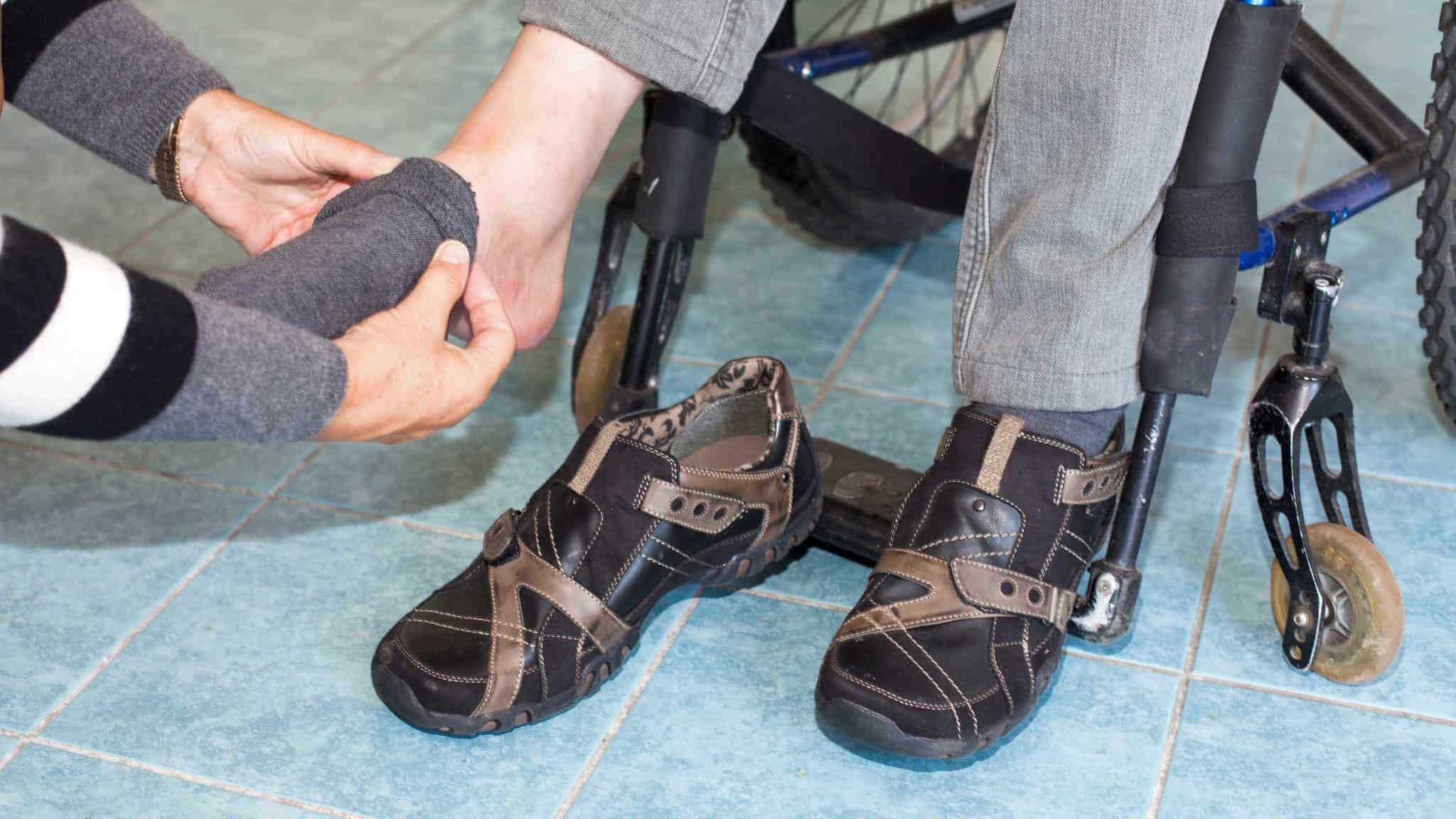Home Health Aides Help Me Live My Life. We Need to Pay Them Better.
When I decided to begin living on my own after my mother’s stroke, I knew I would receive an increase in the number of weekly attendant hours assigned to me. Since I required assistance with several activities of daily living, my hours increased from seven to thirty-two per week. One of my new responsibilities of independent living included learning how to schedule and best utilize these hours.
In the first few years of my new life, I asked my caregiver to work split shifts during the week. Each Monday through Friday, she came in the morning to prepare a hot breakfast, shower me, and conserve my energy by dressing me. Before her two-hour shift ended, she left lunch in the refrigerator. My caregiver returned four hours later to continue performing household chores and cook my dinner. This routine took five of my hours each weekday, leaving me with seven and a half hours to divide between Saturday and Sunday.
Weekends became a continuing challenge to find and keep providers. I managed breakfast and lunch myself with the prepared meals and poured drinks my caregiver left me. Enjoying iced coffee, even on winter mornings, became familiar because nuking it in the microwave posed too many difficulties. And too many clean-ups. Self-reliance could only carry me through early evening, however, when I wanted a hot dinner and needed support in preparing Sunday’s meals. Finding someone to work three and a half hours every Saturday and Sunday caused ongoing worry and stress. When my home health care agency could not hire workers, friends began recruiting potential caregivers, and on numerous occasions, assisted me themselves. New caregivers would work out for a few weeks or months, then take a better offer, want the weekend to herself, or conveniently forget to come.
The simple explanation for the difficulties in hiring and retaining quality home health care providers lies in the terribly low pay. Workers can earn more income and receive benefits from other, often easier, jobs. Who can blame someone for needing to make a basic living wage?
Providing intimate, in-home care can be intimidating as well. Without proper training, in addition to an understanding and a calling to provide vital services to individuals with disabilities, why should someone work without competitive compensation?
There’s a nationwide shortage of home health care workers, but the media coverage about it doesn’t say anything surprising. Family members are sometimes forced to quit jobs to care for relatives with disabilities because of the lack of caregivers. Worse, other individuals must remain in nursing homes or similar facilities due to the shortage of personal attendants who are needed to support community living.
I consider myself fortunate that I have the capabilities to get out of bed, dress, and eat a meal. Once I run out of prepared food and poured beverages, however, I cannot eat. For this reason, my state caseworker designated my needs as “priority one,” meaning the agency had to send someone to help me if my provider was unavailable to work. “Priority one” status did not guarantee that I would receive emergency assistance, though, even as I waited patiently for the agency to fulfill their responsibility in caring for me. Many home health care agencies do not employ floaters to substitute for regular attendants. I have been repeatedly informed that if no other worker can come, an agency supervisor must provide a meal. That didn’t always happen. Too frequently, I have had to ask family members, friends, and neighbors to pitch in when I’m in a bind. They may not mind, but I do.
I have learned much in over six years of living by myself. Although a split schedule nicely accommodated my needs, one daily caregiving shift offers a more practical arrangement for hiring and retaining employees. My care isn’t compromised; I simply rearranged when I eat a hot meal. A single daily shift also eases my provider’s transportation costs and allows her more free time, or additional hours to add to her income.
Recently, I returned to the Consumer Directed Services (CDS) option of managing my own provider services after trying it a few years ago. When I previously tried CDS, I became anxious that I could not hire an attendant to replace a longtime caregiver who could no longer work. So, I returned to the agency option, relying on professionals to advertise the job. Potential candidate after candidate called interested in the job, but only one came to meet me. After working with me for three days in which we established a great rapport, she declined a higher-paying offer to continue working for me. By my returning to the CDS option, she will earn slightly more per hour than with the agency. Is it a decent living wage? Hardly.
I have realized that managing my caregiving will remain the main responsibility of living independently. Until home health care aides earn the income and benefits needed in our competitive society, I, and thousands of individuals who need assistance remaining independent, will worry about our self-determined lives.
About Rooted In Rights
Rooted in Rights exists to amplify the perspectives of the disability community. Blog posts and storyteller videos that we publish and content we re-share on social media do not necessarily reflect the opinions or values of Rooted in Rights nor indicate an endorsement of a program or service by Rooted in Rights. We respect and aim to reflect the diversity of opinions and experiences of the disability community. Rooted in Rights seeks to highlight discussions, not direct them. Learn more about Rooted In Rights



